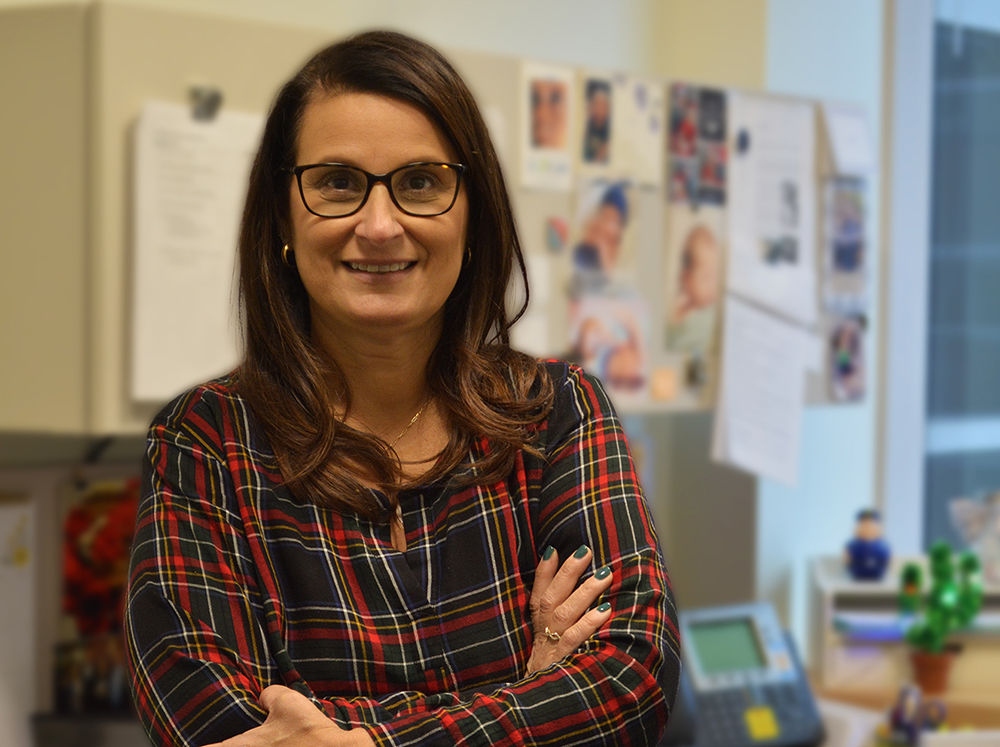Staff StoryJun | 8 | 2022
The Fighter Every Family Wants in Their Corner


Karen Parsons, RN, the coordinator for Mass General for Children’s Fetal Care Program, is a steady guide for families as they face complicated pregnancies.
“We’re helping people through their worst times," says Karen Parsons, RN, patient coordinator for the Mass General for Children (MGfC) Fetal Care Program (FCP). "We’re there to walk them through it."
As a pediatric nurse, Parsons has advocated for the smallest patients — the babies and children who didn’t have the voice or words to do so for themselves. She’s honed her empowering spirit with a personal touch over two decades of working with families and now sits at the helm of the FCP. Parsons coordinates high-quality, specialty care for another group seeking comfort and steady hands in their most vulnerable moments: mothers and babies facing complications in pregnancy, delivery, the neonatal period and beyond.
“I’m a fighter, for both my patients and the program,” she says. “It really makes a difference in people’s lives.”
“If There’s Something, Call Me”
A 25-year employee of Massachusetts General Hospital, Parsons helped launch the FCP with directors Anjali Kaimal, MD, MAS, and Cassandra Kelleher, MD, in 2015. As program coordinators, Parsons and Jaclyn McGowan, NP, provide support for everything that families with complicated beginnings face, helping to make appointments, arranging tests and guiding them through the process.
Testing and monitoring for high-risk pregnancies includes screening for genetic syndromes, diagnostic procedures like amniocentesis, specialized ultrasounds, fetal echocardiograms and fetal MRIs. The FCP receives referrals from within Mass General, throughout the Mass General Brigham system and many other hospitals, including Steward Health. The program assisted 120 patients in its first year and has grown to serve almost 350 families annually.
Parsons sees families first when an anomaly is diagnosed, usually at around 20 weeks, and helps guide them through delivery. During visits, Parsons takes extensive notes and follows up with phone calls. Parsons gives all her patients her personal cell phone number, telling them, “If there’s something, call me. I’m here for you.”
“No matter what families are going through, you can’t always make the medical stuff better, but you can make their experience better by listening and showing that you’re there,” Parsons says. “Your presence makes things better for that family.”
A Personal Approach
Parsons knew she wanted the FCP to be personal and individualized. Before accepting patients, she spoke with other nurses, doctors and patients who had pregnancies with abnormalities or had to terminate the pregnancy.
Those conversations informed what makes the FCP unique. Constant communication and advocacy are key, Parsons says, with both the families and the specialty physicians and surgeons. Patients see experts in maternal-fetal medicine, cardiology, orthopaedics, neurosurgery, radiology, genetics, urology and other disciplines, depending on the complication or abnormality.
“We really treat every patient as a person and not a number. The kind and caring nature we put into our program goes a long way,” Parsons says. “At Mass General, we also have that lifetime span, meaning that we’re able to see those babies before they’re born and then care for them into adulthood.”
Related Pages
Type
Centers and Departments
Topics
Appointments and Referrals
Request an appointment or second opinion, refer a patient, find a doctor or view test results with MGfC's secure online services.

